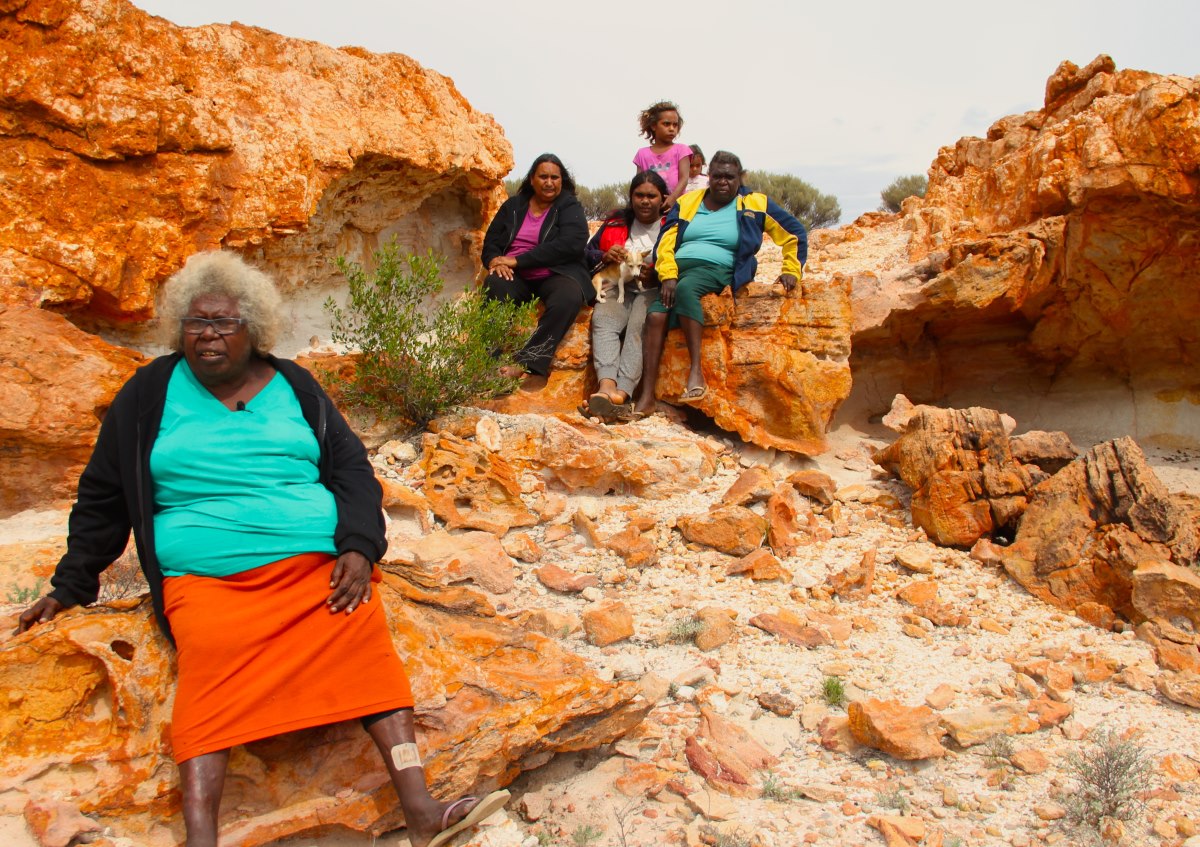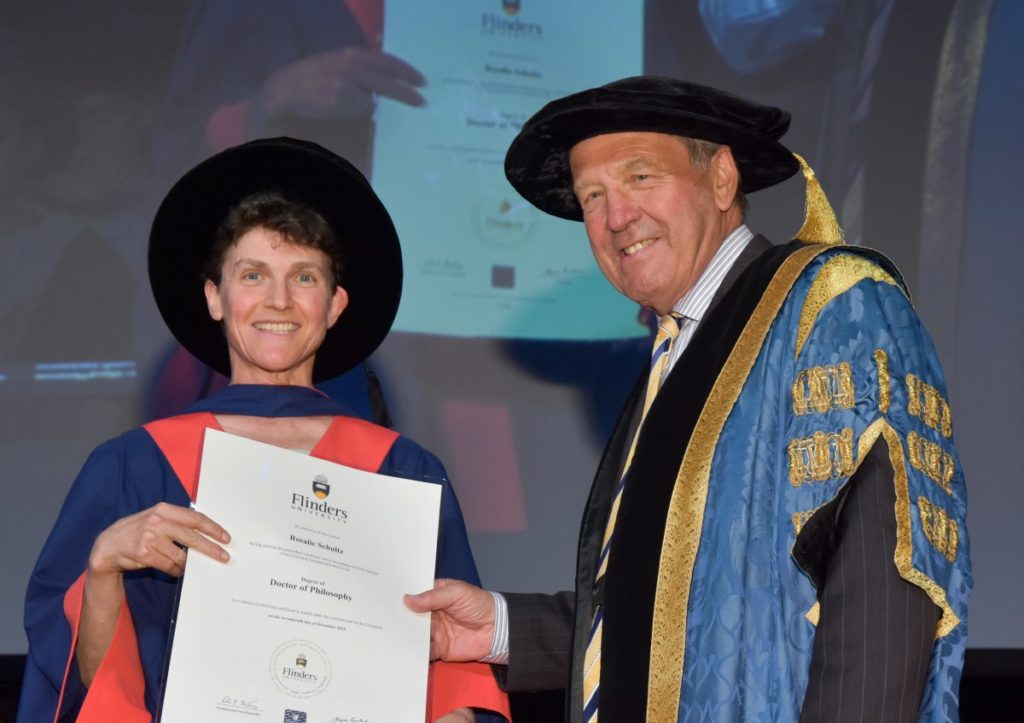
Congratulations to Dr Rosalie Schultz who has recently been awarded her PhD through Flinders University.
Rosalie’s thesis is entitled, “We’re the backbone, not the backseat”: Aboriginal insights into service provision for wellbeing and health’. It explores how services can contribute to wellbeing for Aboriginal people in remote Australia, with empowerment and identity emerging as key priorities.
Rosalie noted the creative and productive challenge of research compared with studying medicine and her years of clinical practice. ‘I had some ideas of how the world of health research worked from my undergraduate medical training and knew the importance of rigour in research from assisting in research projects. However, undertaking a PhD provides a great opportunity to explore your own interests, compared with clinical practice which centres on patients’.

Rosalie shares more about her PhD experience, her key findings and how her research will impact the wellbeing of Aboriginal people:
‘My clinical work over many years has been with Aboriginal people in remote Australia, who report high levels of wellbeing that as a doctor I have struggled to understand. However, the enigma was illuminated by my PhD research with the Interplay research project which explored wellbeing for Aboriginal people in remote Australia.
‘Aboriginal people were involved in all aspects of the research from governance to design, methods, analysis and reporting and I valued this because I believe that non-Indigenous people conducting research can continue to colonise Aboriginal people. Tammy Abbot and Jessica Yamaguchi were senior Aboriginal researchers on the project and worked closely with my supervisor, Sheree Cairney and me.
‘Key findings of the research were the importance of Aboriginal identity, language and culture in wellbeing. These priorities are expressed in Aboriginal land management – Ranger work. The Interplay project contributes to the growing body of evidence of the many values of Aboriginal people working on Country.
‘Having this deep understanding of wellbeing for Aboriginal people strengthens my capacity to provide clinical health care in ways that can enhance wellbeing’.

